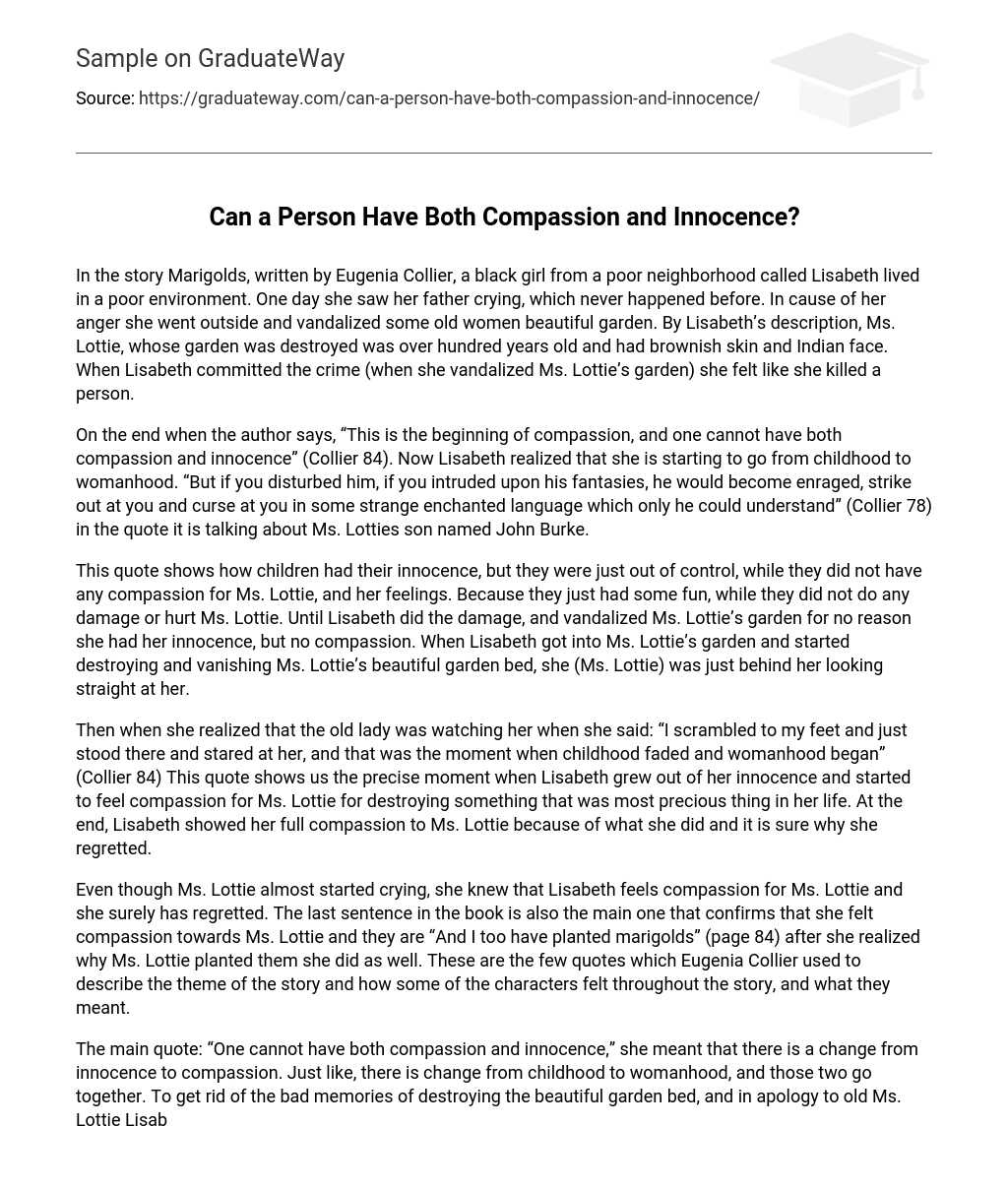In the story Marigolds, written by Eugenia Collier, a black girl from a poor neighborhood called Lisabeth lived in a poor environment. One day she saw her father crying, which never happened before. In cause of her anger she went outside and vandalized some old women beautiful garden. By Lisabeth’s description, Ms. Lottie, whose garden was destroyed was over hundred years old and had brownish skin and Indian face. When Lisabeth committed the crime (when she vandalized Ms. Lottie’s garden) she felt like she killed a person.
On the end when the author says, “This is the beginning of compassion, and one cannot have both compassion and innocence” (Collier 84). Now Lisabeth realized that she is starting to go from childhood to womanhood. “But if you disturbed him, if you intruded upon his fantasies, he would become enraged, strike out at you and curse at you in some strange enchanted language which only he could understand” (Collier 78) in the quote it is talking about Ms. Lotties son named John Burke.
This quote shows how children had their innocence, but they were just out of control, while they did not have any compassion for Ms. Lottie, and her feelings. Because they just had some fun, while they did not do any damage or hurt Ms. Lottie. Until Lisabeth did the damage, and vandalized Ms. Lottie’s garden for no reason she had her innocence, but no compassion. When Lisabeth got into Ms. Lottie’s garden and started destroying and vanishing Ms. Lottie’s beautiful garden bed, she (Ms. Lottie) was just behind her looking straight at her.
Then when she realized that the old lady was watching her when she said: “I scrambled to my feet and just stood there and stared at her, and that was the moment when childhood faded and womanhood began” (Collier 84) This quote shows us the precise moment when Lisabeth grew out of her innocence and started to feel compassion for Ms. Lottie for destroying something that was most precious thing in her life. At the end, Lisabeth showed her full compassion to Ms. Lottie because of what she did and it is sure why she regretted.
Even though Ms. Lottie almost started crying, she knew that Lisabeth feels compassion for Ms. Lottie and she surely has regretted. The last sentence in the book is also the main one that confirms that she felt compassion towards Ms. Lottie and they are “And I too have planted marigolds” (page 84) after she realized why Ms. Lottie planted them she did as well. These are the few quotes which Eugenia Collier used to describe the theme of the story and how some of the characters felt throughout the story, and what they meant.
The main quote: “One cannot have both compassion and innocence,” she meant that there is a change from innocence to compassion. Just like, there is change from childhood to womanhood, and those two go together. To get rid of the bad memories of destroying the beautiful garden bed, and in apology to old Ms. Lottie Lisabeth made a same marigolds garden bed: “And I too have planted marigolds. ”(Collier 84) Work cited page Collier, Euginia. Marigolds. Comp. Arthur N. Applebee. Evanston, IL: McDougal Littell, 2000. Print.





